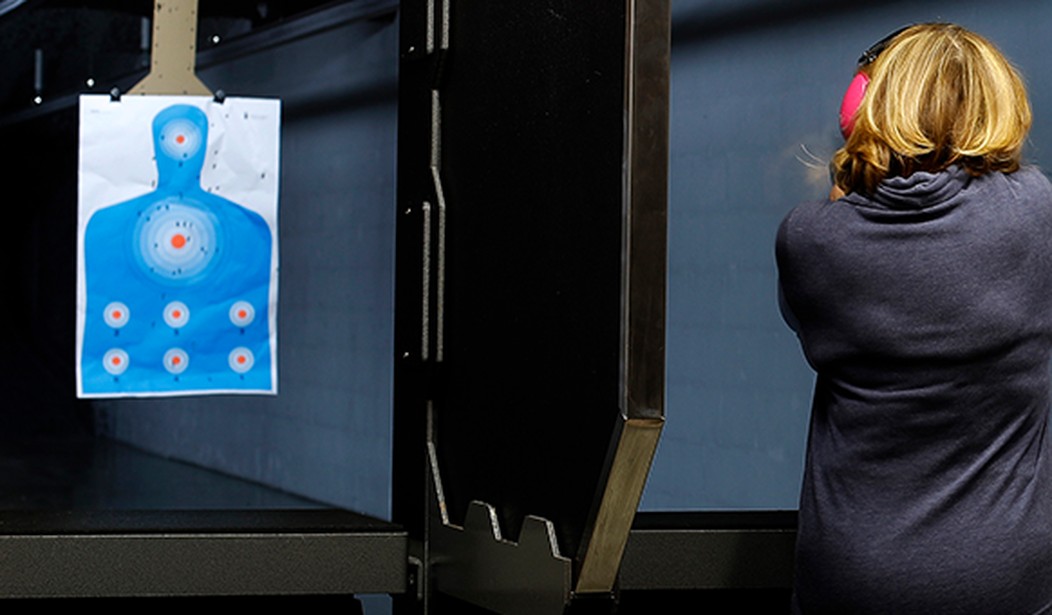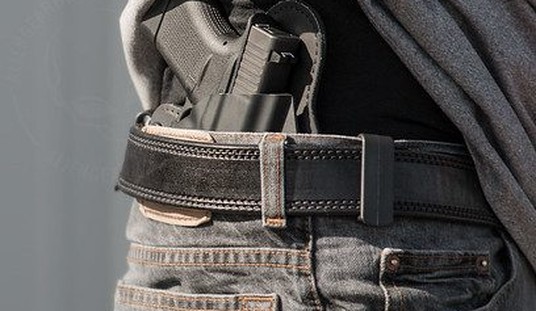Polling has long been an important part of the political process. It’s how we know what support a proposal has. For example, we know people hate a law because the polling tells us so.
Politicians use polls to tell them what measures are safe to back and which aren’t. Oh, sure, there’s often some underlying principle. If not for them, then for their constituents. It’s why GOP lawmakers rarely back gun control regardless of polling.
However, let’s make no mistake. The polling says that support for gun control appears to be growing.
The percentage of Americans who favor stricter gun laws is on the rise, though significant partisan divisions persist. A Pew Research Center survey conducted in September found that 60% of Americans say gun laws should be tougher, up from 57% last year and 52% in 2017.
The study, released this week, indicates that while a solid majority of Americans favor stricter gun laws, support remains split down party lines. Eighty-six percent of Democrats and Democratic-leaning independents said gun laws should be stricter than they are today, compared with 31% of their Republican counterparts.
Large majorities of Democrats and Republicans somewhat or strongly support barring people with mental illnesses from purchasing guns, as well as making private gun sales and sales at gun shows subject to background checks. But when it comes to banning high-capacity ammunition magazines and assault-style weapons, the parties diverge: Nearly 9 in 10 Democrats favor each of these proposals, compared with roughly half of Republicans.
Wow. That’s not good, now is it?
However, it runs counter to other bits of news. For example, while violent crime is dropping, we see the numbers of assault weapons sold and concealed carry growing nationally. The number of people who are carrying is growing.
Further, it’s not just people in conservative states.
In 2009, 10 people were issued gun licenses in Hull, a town with a population of a little more than 10,000.
By 2017, the number of licenses issued in the town had shot up to 109.
Hull isn’t alone. Across two presidential administrations representing both parties, endless gun control debates and countless mass shootings, more and more people on the South Shore have sought gun licenses.
In 20 communities south of Boston, the number of licenses issued from 2013 to 2018 was almost 50 percent higher than the number issued in the six years prior.
Hull doubled the number of licenses issued in that period, while Holbrook and Randolph gun licenses increased by 71 percent and 65 percent, respectively.
Quincy, Kingston, Braintree, Pembroke, Marshfield and Norwell all rose by more than 50 percent, according to data from the state Department of Criminal Justice Information Services.
There are three types of gun licenses in Massachusetts, each good for six years.
This is in progressive Massachusetts.
So what gives? Why are the polls telling us one thing, yet we get stories about more people getting gun licenses?
Well, first, it matters what the poll is asking about. Take this part from the first blockquote above:
Large majorities of Democrats and Republicans somewhat or strongly support barring people with mental illnesses from purchasing guns, as well as making private gun sales and sales at gun shows subject to background checks.
The phrasing here is important. For example, when people hear “mental illness,” they think paranoid schizophrenia or something similarly dangerous. They’re not thinking of things like depression. Yet laws, when crafted, lump far more matters into the same hill.
Further, poll respondents probably don’t realize that all but a tiny fraction of sales at gun shows undergo a background check, and those sales are from non-licensed sellers, usually only a gun or two. They’re hardly common.
Of course, that’s only one possibility. Another is to acknowledge how lacking polls have been lately. Remember, the polls said Hillary Clinton was going to be president. It also said the British voters would reject Brexit.
How did those work out?
Anyway, I suspect that lawmakers looking to the polls for advice would do well to skip that step and instead talk to their constituents. In particular, seek them out in various places rather than waiting for them to come to you. Find out for sure how they feel about guns and gun rights. I suspect you’ll find that there’s far broader support for the right to keep and bear arms than the polls suggest.








Join the conversation as a VIP Member